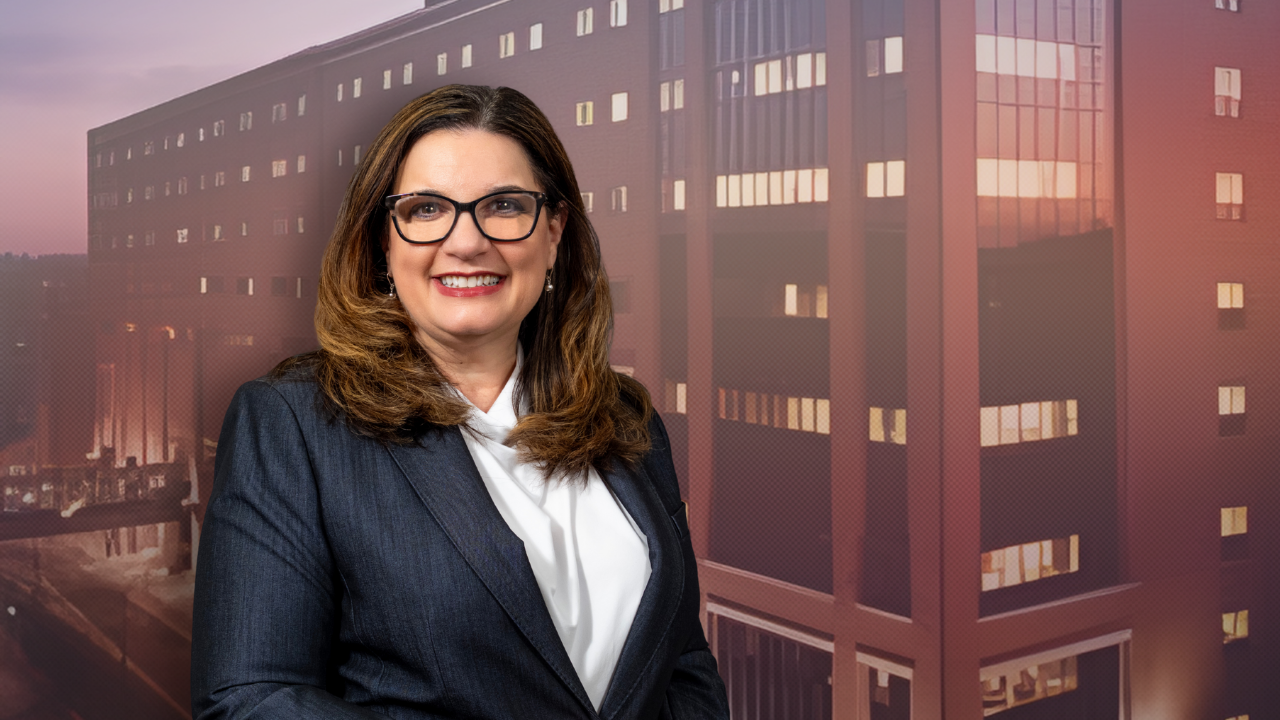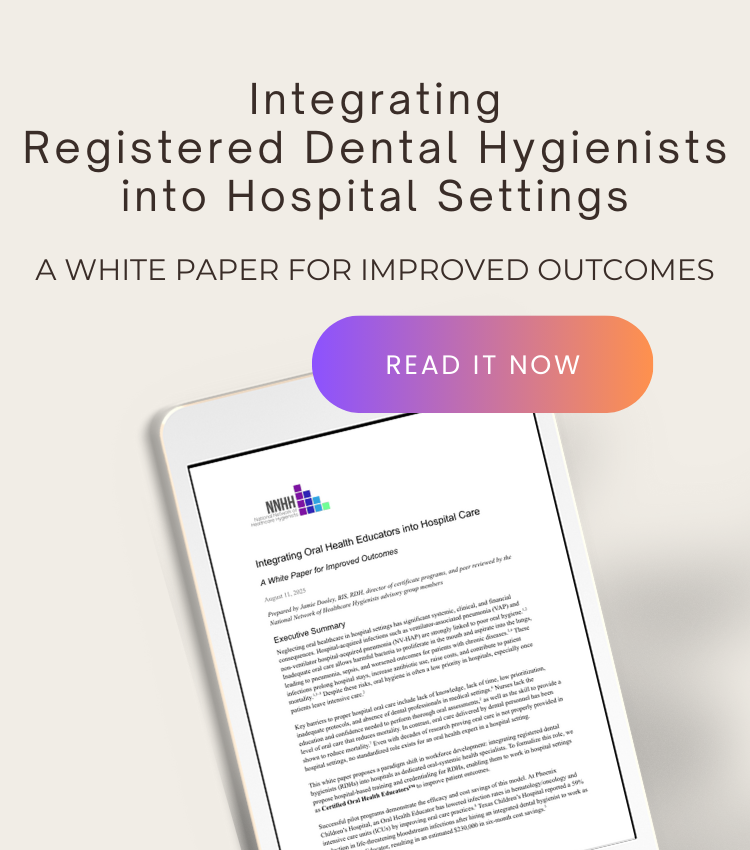
How One RDH Forged a New Path as a Hospital Infection Preventionist
Oct 22, 2025For many registered dental hygienists (RDHs), a fulfilling career is spent at the patient's chairside, providing essential oral healthcare. But what if your passion for preventing infections could extend beyond the dental office and into a hospital setting? The story of Lisa Stevwing, BS, RDH, CIC, is a powerful testament to the untapped career potential for dental hygienists in the broader healthcare landscape.
From Burnout to a New Calling
After more than 25 years in private practice, Lisa, like many healthcare professionals, found herself in physical burnout, especially with the added pressures of the COVID-19 pandemic. In 2021, she made the bold decision to retire from chairside dentistry and explore a new avenue. Her journey led her to a position as a facility coordinator at West Penn Hospital, part of the Allegheny Health Network. This role provided her with a unique, behind-the-scenes perspective on the intricate workings of a hospital, from air and water quality to the stringent regulations of the Joint Commission.
This experience opened her eyes to the critical field of infection prevention. Prior to her role as a facility coordinator, Lisa had never heard of an infection preventionist, which is why she wanted to share her story. When a position opened up in the hospital's Infection Prevention department, Lisa discovered that her extensive background as an RDH made her an ideal candidate.
"The infection preventionist role traditionally goes to an RN, but I was qualified with my RDH license because we sterilize instruments, take x-rays, clean water and suction lines, and understand biofilm to the extent we do."
In less than two years, Lisa became board certified in infection control (CIC), a remarkable achievement that she believes makes her the only RDH to have made this professional transition.
The Expanding Role of an RDH in a Hospital Setting
Lisa's role as an infection preventionist at a 10-hospital network is a far cry from the routine of a private dental practice. She is responsible for a 356-bed hospital with a Level 3 NICU, a burn ICU, and a surgical oncology specialty. Her responsibilities are vast and varied, demonstrating the significant impact an RDH can have in a hospital environment:
- Disease Prevention: Lisa is actively involved in committees to review and implement preventive measures for hospital-acquired infections such as CLABSIs (Central Line-Associated Bloodstream Infections), CAUTIs (Catheter-Associated Urinary Tract Infections), and SSIs (Surgical Site Infections).
- Education and Training: She educates new hospital staff on crucial topics like hand hygiene, isolation protocols, and water management. She also provides specialized training to new hires on preventing CLABSIs and CAUTIs.
- Process Improvement: Lisa is at the forefront of developing new procedures to enhance patient care. She is currently working with a multidisciplinary team to create a standardized procedure for ventilated patients to prevent VAE (Ventilator-Associated Events).
- Oral Health Advocacy: Recognizing the link between oral health and systemic health, Lisa is developing a process with the oncology floor to improve oral care for patients undergoing BMT and CAR-T cell transplants. This includes managing mucositis, xerostomia, and other oral complications.
A Symbiotic Relationship: Dentistry and Infection Prevention
Lisa's journey underscores the symbiotic relationship between dental hygiene and infection prevention. Her deep understanding of sterilization processes, water management, and infection control, honed over 25 years as an RDH, has allowed her to identify and rectify legacy processes in both medical and dental settings. She is now in a position to educate and implement changes that will improve patient safety on a large scale.
"My two professions have a symbiotic relationship because I have spent my whole professional life trying to prevent infections. I do the same now, from an expanded perspective."
A Vital Part of a Dedicated Interprofessional Team
Lisa’s role requires her to be an open-minded, lifelong learner and teacher. Recently, she discovered a unique niche where her background as a dental hygienist allows her to make a meaningful impact. She enrolled in the Oncology Certificate Program for RDHs and plans to apply her new knowledge within the oncology clinics and inpatient oncology floor—offering adjunctive oral care recommendations to support patients’ overall health.
Lisa also serves on an interprofessional process development team—including oncology floor educators, speech-language pathologists, and nurse managers—focused on improving outcomes for patients undergoing BMT and CAR-T cell transplants who have oral health issues. She encourages fellow hygienists transitioning into broader healthcare roles to speak up and share from their vast well of oral-systemic health expertise. Hygienists bring a unique and valuable perspective to the hospital environment, contributing significantly to improved outcomes.
Your Future Beyond the Chair
Lisa Stevwing's story is an inspiration for all registered dental hygienists who may be seeking new challenges or alternative career paths. It highlights the value of your unique skillset and the potential to make a significant impact in a hospital setting. If you are an RDH with a passion for infection control and a desire to expand your professional horizons, a career as an infection preventionist could be your next calling.
Connect with Lisa at [email protected]











